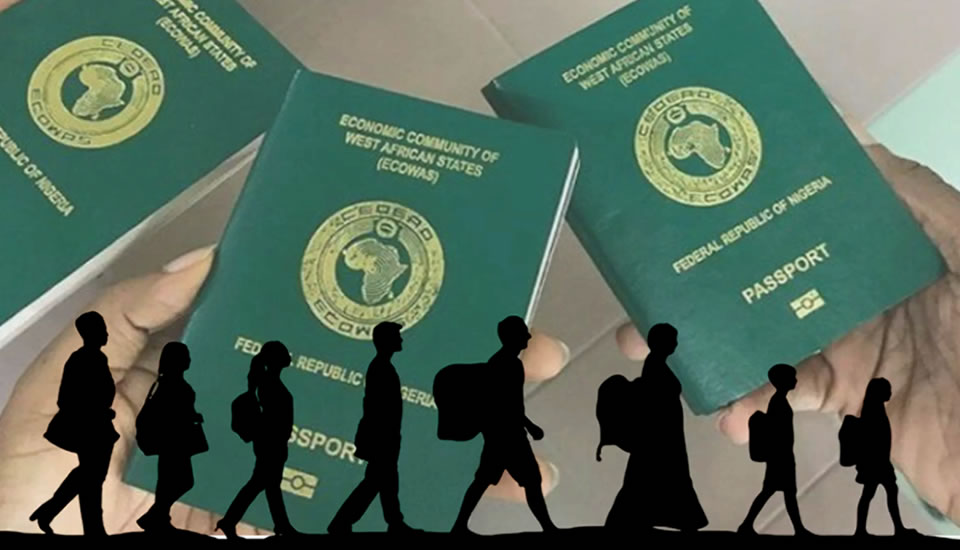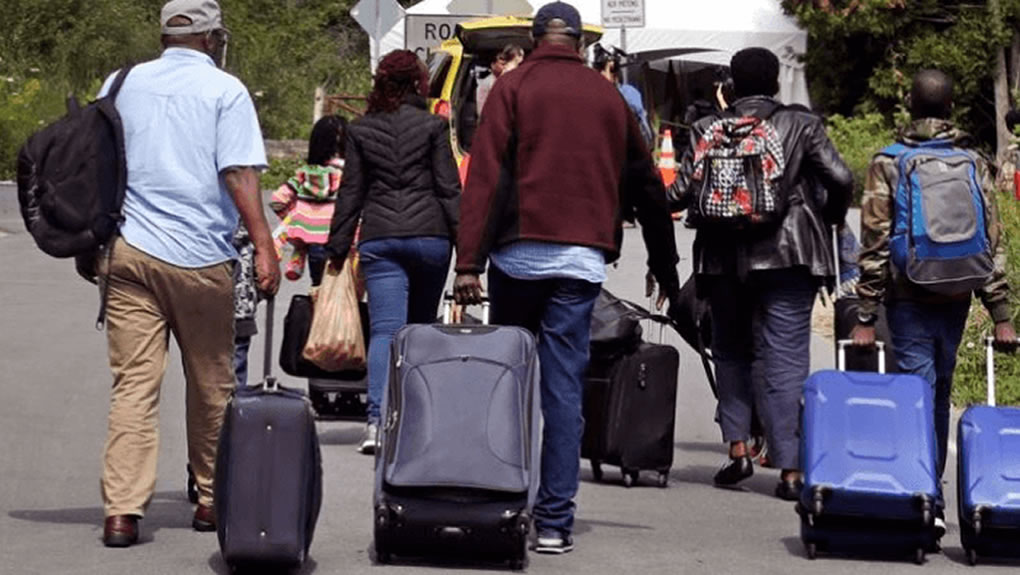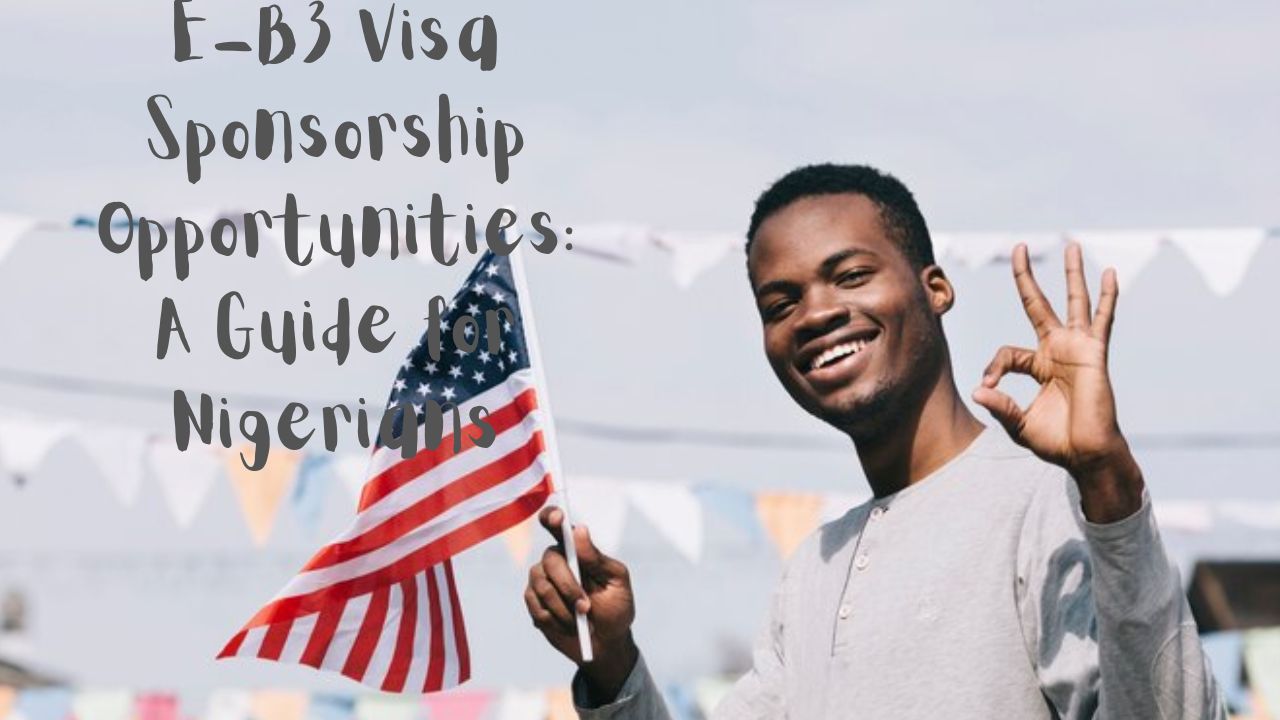The desire to seek new opportunities, pursue higher education, or simply experience a different way of life has driven many Nigerians to consider migrating abroad. In this guide, we will explore the various ways Nigerians can migrate abroad. Read more to see the pathway to follow.
Nigerians have been seeking opportunities abroad for various reasons. Economic instability, lack of job prospects, political uncertainty, and the quest for better education and healthcare are some driving factors.
There are many unknown ways Nigerians can use to relocate abroad. While the study route seems very popular and involves lots of money, individuals can explore other ways to Japa. Let’s look at the different ways one can travel abroad from Nigeria.
Ways Nigerians Can Migrate Abroad: 13 Migration Routes to Explore
1. Study Visa
Education is one of the most preferred routes for many Nigerians to relocate to other countries, with the use of student visas. Among the popular study destinations for Nigerian students are the United States, the United Kingdom, Canada, Australia, and Germany.
To apply for a visa in any of these countries, applicants from Nigeria must have an offer of admission from a recognized school in the country; in addition, they need to provide proof of funds and other visa requirements.
For instance, to study in the US, Nigerians will apply for the F-1 visa, which admits students for full-time study with restrictions on working on campus only. See tips on how to prepare for the F-1 visa interviews.
The UK has a Tier 4 (general) student visa, which allows students to engage in part-time work while studying. Both the Canada Study Permit and the Australia Student Visa (subclass 500) also allow working while studying.
2. Skilled Worker Programs
Canada’s Express Entry: This system is open to skilled workers who want to migrate to Canada. Applicants are to complete and submit an online profile in the Express Entry pool. In this system, the applicants are ranked based on their age, education, experience of the job, and language skills.
The applicants with the best scores are issued an Invitation to Apply (ITA) for permanent residence. This pathway is effective and appropriate for several professional roles that are in high demand in Canada.
Australia’s Skilled Migration Program: These are the Skilled Independent Visa subclass 189 and the Skilled Nominated Visa subclass 190. A subclass 189 visa enables skilled employees to work anywhere in Australia without employer sponsorship.
The subclass 190 visa can be applied only under the sponsorship of an Australian state or territory government, which also adds points to the application.
United Kingdom: The UK provides the Skilled Worker visa, which has replaced the Tier 2 (General) visa. It means that the person must have a job offer from an employer based in the United Kingdom and possess a valid sponsorship permit.
Applicants need to fulfill the skilled employment criteria, the minimum income requirement, and pass the English language test. It is especially suitable for professionals in such fields as healthcare, engineering, and information technology.
3. Work Opportunities
Getting an employment offer from an employer in another country is one of the ways Nigerians can migrate abroad. Several countries have work visas that foreigners can apply for. However, the applicant must ensure that the work is genuine and that such a job is on the job shortage list in the intended country.
The US H-1B visa, for example, is for highly skilled workers in demanding occupations requiring theoretical or technical knowledge. The Tier 2 visa of the United Kingdom enables skilled individuals to take up employment opportunities that cannot be filled by the citizens (locals).
The EU Blue Card for Germany is for qualified non-EU nationals and makes it easy to apply for residency.
Another category of people that fits into this definition is the employees of multinational companies who engage in intra-company transfers.
This option enables the person to move to another country of his or her employer organization branch. It often requires applying for a special visa type for company transfers, like the US L-1 visa or the UK Tier 2 (Intra-Company Transfer) visa.
4. Family Sponsorship
Through the family reunion visa, Nigerians can use this method to travel abroad. However, not everyone can apply for this type of visa. This process is common in countries like Canada, the United States, and the United Kingdom, each of which offers formal programs to enhance family reunions.
In Canada, the Family Class Sponsorship allows people who are Canadian citizens or permanent residents to sponsor their spouse, children, parents, or grandparents.
The US offers similar chances through the Family Immigration program, which offers preference to immediate relatives such as spouses, siblings, and parents of US citizens.
The UK also has its own family visa system, under which citizens and persons settled in the country can bring their spouses, children, and dependents into the country.
These programs normally require that the sponsor prove that he has the core financial ability to support the incoming family members.
5. Investment and Business Opportunities
Investor Visas: Investor visas are a reasonable way through which Nigerians can migrate by investing in an economy of their choice. For example, the US EB-5 visa involves an investment of at least $900,000 in a designated commercial enterprise to obtain permanent residency.
The Canada Start-up Visa is geared towards innovative entrepreneurs with the ability to secure investment from Canadian venture capital funds, angel investors, or venture partners.
The Tier 1 Investor Visa of the United Kingdom requires a minimum investment of £2 million, enabling the investor and his dependents to reside in the UK.
Entrepreneurial Visas: Entrepreneurial visas are relevant for those who want to start their own companies in another country.
Currently, New Zealand has the Entrepreneur Work visa, which allows the holder to work in the business that he or she owns. The length of stay is 3 years.
6. Asylum and Refugee Status
The United States, Canada, Germany, and the United Kingdom are among the countries that provide asylum to people who can prove a well-founded fear of persecution in their home country.
To apply for asylum, one has to give specifics about the risks experienced, which can also be attended to by interviews and criminal record checks.
It is always wise to consult a lawyer, especially when filing an asylum application, to meet all legal formalities and present good grounds for the case.
7. Marrying a Citizen
One of the ways Nigerians can travel to or move to another country is by marrying a citizen or permanent resident of the country in question. This very often involves applying for a spousal visa that may later lead to residency and citizenship.
Spousal Visas: To obtain a spousal visa, one can marry a citizen or a permanent resident. This visa enables the foreign spouse and his or her dependents to live and work in the country and is also likely to be a pathway to permanent residency and citizenship.
When a Nigerian marries a foreign national, they must meet specific requirements and follow a set process to sponsor their spouse for immigration.
These often include evidence of a bona fide relationship and adequate financial sponsorship. In addition, it also requires one to present marriage certificates, proof of relationship, financial status, etc.
8. Special Skills or Talents
Nigerians with exceptional skills in the arts, sports, science, or business can use this means to Japa. These visas are meant for those who can have a significant positive impact on the cultural, scientific, or economic potential of a country.
The United States of America has an extraordinary skill category for which applicants can apply for the O-1 visa.
Similarly, Australia provides the Distinguished Talent Visa, which is aimed at individuals with outstanding achievements and an internationally recognized record in their profession. This visa grants the recipient permission to reside in Australia and to further assist in the development of the country.
9. Exchange Programs
For example, the US J-1 visa focuses on cultural exchange and offers positions as au pairs, interns, and researchers. These programs enhance the understanding of students of another culture and help build a global perspective.
Nigerians can explore diverse options like teaching assistantships, agricultural internships, or hospitality placements. Applicants who want to participate in a program must seek out a sponsor organization, meet program requirements.
10. Healthcare and Medical Professionals Visas
Doctors and nurses are among the most sought-after professionals in the global market, and this has made the process of acquiring work visas easier for them
Various countries, for instance, the United Kingdom, Canada, and Australia, search for professional and specialized healthcare workers due to scarcity in their health sectors.
The United Kingdom has a Tier 2 (general) visa, which is primarily meant for skilled personnel. Canada, through its Express Entry system, has a Federal Skilled Worker Program under which healthcare workers are considered a priority.
Medical practitioners can apply for the Skilled Independent Visa (subclass 189) and the Skilled Nominated Visa (subclass 190) in Australia.
These types of visas often demand documents showing education certifications, work experience, and proficiency in foreign languages.
11. Humanitarian and Volunteer Work
Some of the ways of living and working in another country include volunteering with huge global organizations such as the United Nations (UN) or the Peace Corps. These organizations need volunteers for humanitarian aid, development, and peace support operations in various parts of the world.
Applying for such programs can improve one’s resume, provide working experience, and sometimes open doors for permanent positions. There are also provisions made for volunteers, which include accommodation, living allowances, and health insurance.
It can also be used to apply for permanent residence or a work visa in the host country, especially if the volunteer work shows that the person is willing to give back.
12. International Scholarships and Fellowships
Getting an international scholarship is a good avenue for Nigerians to travel and study in other countries while also having the opportunity to permanently reside in those countries.
Scholarships such as the Fulbright Scholar program in the United States and the Chevening Scholarship in the United Kingdom provide for tuition fees, other charges, and accommodation, in addition to providing support structures and professional development activities.
These scholarships are very competitive, and the students must have good academic standing, leadership abilities, and clear goals for what they plan to achieve in their home country in the future.
13. Foreign Legion
France is one of those countries that has provided special immigration routes that allow people to gain citizenship through serving in the armed forces, one of which is the French Foreign Legion. The Foreign Legion is an organization that allows foreigners to join the French military force.
After they have served honorably for several years, recruits are granted French citizenship. The basic agreement is usually for five years, with training, food, shelter, and wages provided to the soldiers.
This path is for military personnel, and anyone who wants to become a citizen quickly. Service in the Foreign Legion also ends the soldier’s naturalization process and opens doors for further work and residence in France.
Ways Nigerians Can Migrate Abroad: Selecting the Appropriate Migration Path

Before making up your mind to migrate from Nigeria, there are some issues that you should consider. They are:
1) The Migration Route
Selecting the correct migration path is an important factor you must consider. If you go with the right visa, you won’t need to run from the border patrol team or do unbefitting jobs just to survive.
2) Safety
Also, the issue of safety is among the most important factors that should be considered when choosing the best ways for Nigerians to migrate abroad. This is because some migration routes may be unsafe due to political instability, conflict, or criminality in comparison to others.
3) Legal Structure
Another important consideration when deciding on a migration path is the legal structure of the path. Some migration routes may involve the violation of immigration law like overstaying a visa or crossing borders illegally.
You should also ensure that you select a legal route and one that does not go against the laws of the countries that you will be transiting through.
4) Cost
Some routes may be more costly than others, which means that one has to invest a lot of capital to successfully cover the entire journey.
Conclusion
There are various opportunities that Nigerians who wish to travel abroad have to consider. Skilled worker visas, intra-company transfers, and student programs are some of the routes available to make your dream a possibility.
Therefore, you need to ensure that you research the specifications as well as the admission procedures of the country of your preference. If you are planning to japa, these are some of the legal ways to use.







Pingback:
Pingback: